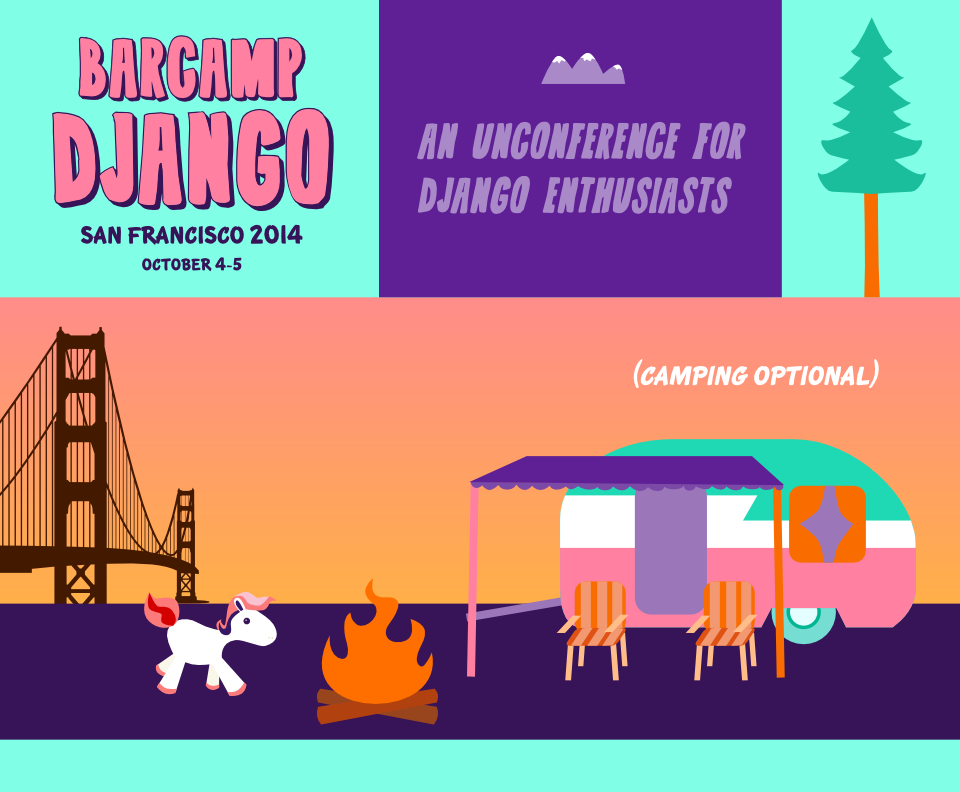We’re excited to announce that the first BarCamp Django SF will take place at Eventbrite’s San Francisco HQ October 4th-5th, 2014. For a solid weekend, Django developers and enthusiasts spanning all skill levels and coming from a wide range of backgrounds will come together in a friendly, cooperative environment designed to educate and inspire collaboration. For 30 hours we’ll learn, build, play, and connect with others.
BarCamp Django SF will run for two days from 10am Saturday (10/4) morning until 4pm Sunday (10/5). Doors will be open throughout the duration of the event, and attendees are welcome to camp out overnight. (If you do plan on camping, please plan on bringing your own camping gear: sleeping bag, blow up bed, pillows & blankets and a toothbrush.)
A BarCamp is an ad-hoc conference (an un-conference, if you will). At BarCamps, everyone who attends is expected to actively contribute in some way – by giving a talk, arranging an activity, getting involved in an interactive session or generally helping out with running the event.
Grab your ticket
BarCamp Django SF is a community event
What does that mean? First, 100% of the ticket price will be donated to the Django Software Foundation. This event will rely on donations for space, meals, technology, and everything else required to keep 150 developers fueled for 30 hours.
Second, everyone pitches in. Attendees give talks, select workshops, help with setup, cleanup, and taking care of the space. Not only does it help us keep costs low, it adds to the collaborative nature of the BarCamp.
Third, unlike regular conferences, the schedule for a BarCamp isn’t set in advance; instead, it’s organized by the attendees at the start of the event. The schedule starts as an empty grid, with rooms and time slots but no sessions. Participants then write down the session they want to run on an index card and assign themselves a slot on the grid.
How does ticketing work?
We are charging $15 a ticket to curb no-shows as space is limited, the event capacity is capped at 150 attendees to encourage participation from everyone. Again, all proceeds from ticket sales are donated to the Django Software Foundation.
We’ll be releasing tickets in several rounds today and over the next few weeks to ensure equal access. Get your ticket here.
Limited numbers of tickets will be released on:
• 9/4 @ 10am PST
• 9/10 @ 4pm PST
• 9/17 @ 12pm PST
• 9/24 @ 8pm PST
We’re looking forward to building our community of Django enthusiasts.
BarCamp Django SF is a professional event, and we want the space to be welcoming to all members of the community. All attendees must agree to abide by the Eventbrite Code of Conduct.



